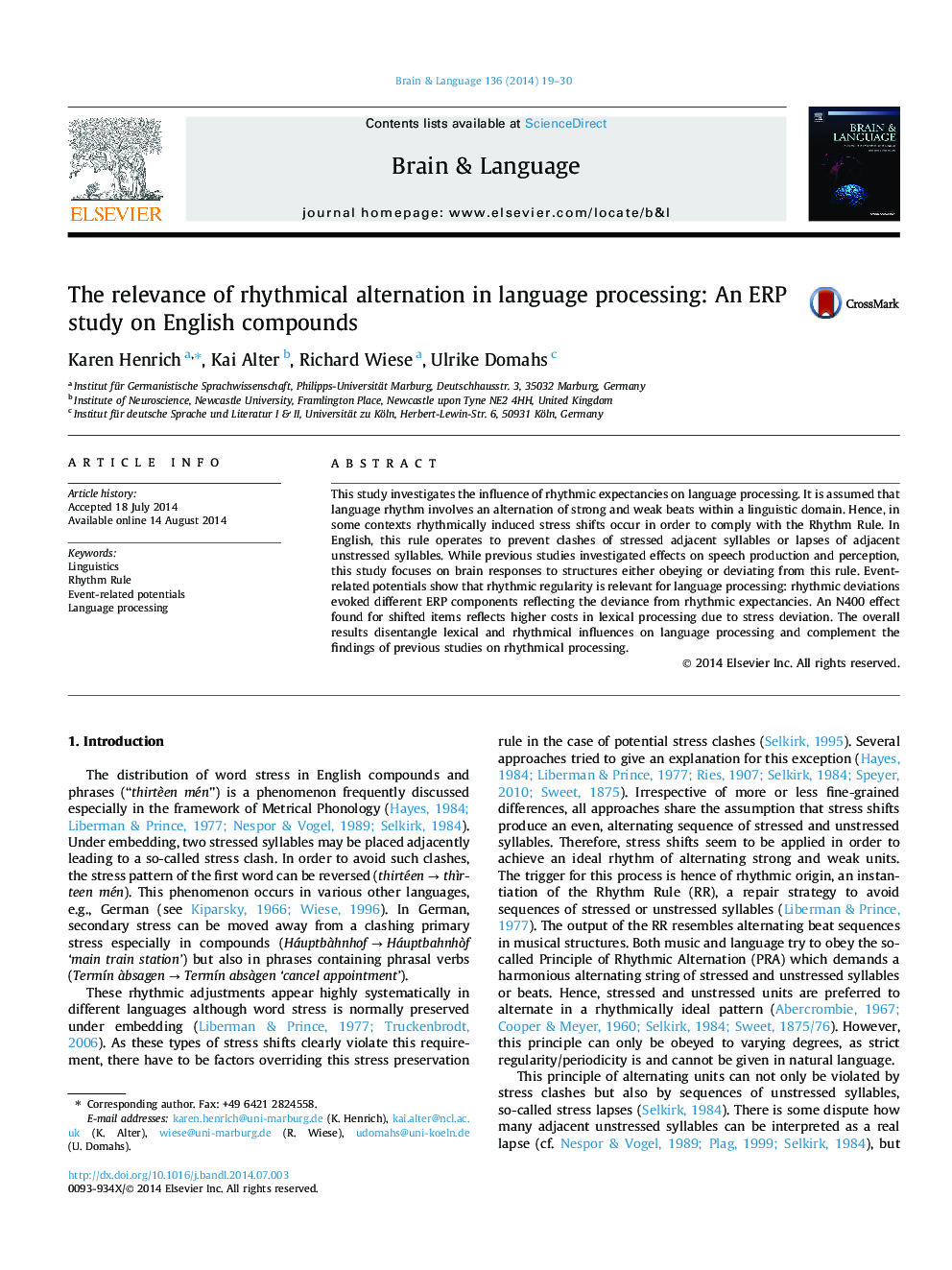| Article ID | Journal | Published Year | Pages | File Type |
|---|---|---|---|---|
| 7284770 | Brain and Language | 2014 | 12 Pages |
Abstract
This study investigates the influence of rhythmic expectancies on language processing. It is assumed that language rhythm involves an alternation of strong and weak beats within a linguistic domain. Hence, in some contexts rhythmically induced stress shifts occur in order to comply with the Rhythm Rule. In English, this rule operates to prevent clashes of stressed adjacent syllables or lapses of adjacent unstressed syllables. While previous studies investigated effects on speech production and perception, this study focuses on brain responses to structures either obeying or deviating from this rule. Event-related potentials show that rhythmic regularity is relevant for language processing: rhythmic deviations evoked different ERP components reflecting the deviance from rhythmic expectancies. An N400 effect found for shifted items reflects higher costs in lexical processing due to stress deviation. The overall results disentangle lexical and rhythmical influences on language processing and complement the findings of previous studies on rhythmical processing.
Related Topics
Life Sciences
Neuroscience
Biological Psychiatry
Authors
Karen Henrich, Kai Alter, Richard Wiese, Ulrike Domahs,
